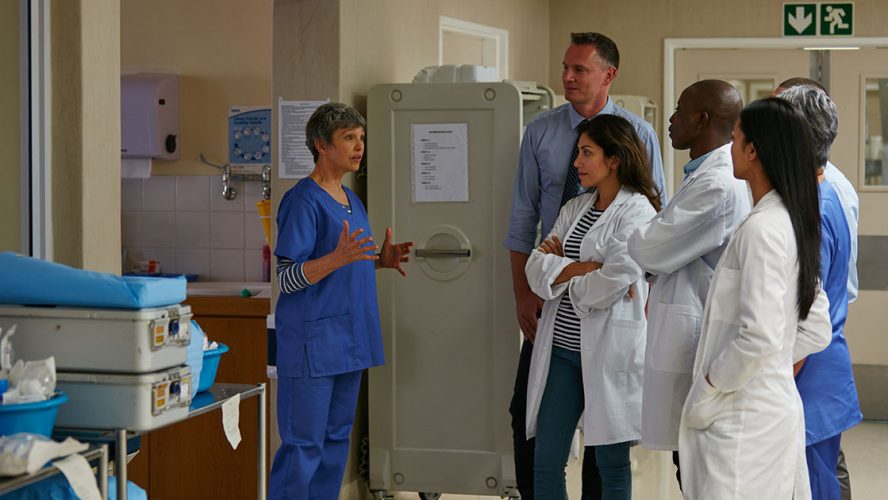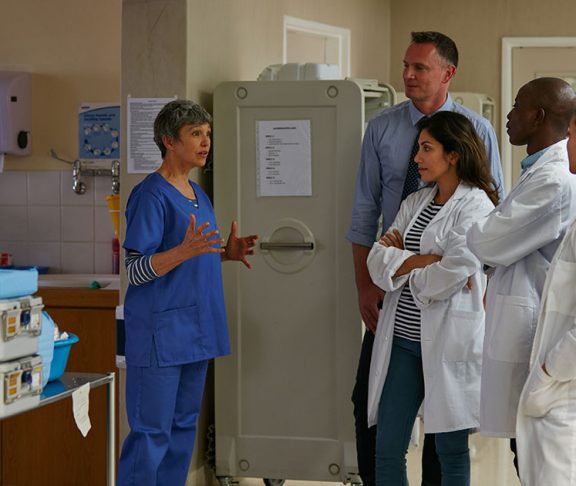“The patient is the center for all of us,” says liver transplant coordinator Penny Keaney, BSN, MA, RN, CCTC, President of the International Transplant Nurses Society (ITNS), a non-profit resource to its members worldwide in the transplant field.
All transplantation medical providers and caregivers have very specific, defined roles. “We all have to be competent in our area and work together and communicate for the best outcome for the patients,” says Keaney.
Working in the transplantation field is a passion for Keaney and her colleagues. They’re eager to help patients through the process and guide others in the field too. Many medical centers require employees to have transplantation certification. Others educate their staff. Electronic records are helpful for tracking a patient’s care, including procedures, tests, current status and plan of care. All those detailed records help everyone on the team – from nurses to doctors to techs and other providers – know the patient.
Support system
In her over 40-year career in transplantation, she’s met patients, families and countless medical caregivers, ranging from nurses and doctors to fellow transplant coordinators. She knows how tough it can be for everyone involved to balance medical concerns with real-life emotions and relationships.
“People do get close to their patients because they’re following them for years,” Keaney says, estimating it takes one to three years for medical professionals working in transplantation to get accustomed to the field. She remembers when a dying transplant patient, who had had failed transplants, asked her to attend a family meeting,
“She couldn’t be their strength anymore,” says Keaney. “She wasn’t going to be the one doing things for everybody. She was at a point where they had to help her.” As the transplant coordinator, she attended that meeting knowing the patient trusted her and needed support, in addition to medical care.
Doing all you can
Using that personal experience and others, Keaney reminds other medical professionals and caregivers that while each case is different, you have to treat the patient as an individual. That includes clearly explaining the care and answering questions. She often recommends palliative care for patients who are very sick.
“You get to know them very, very well and get to know their families well,” she says. “When it didn’t go well, it can be very hard.”
It’s a harsh reality that not every transplant is a success and in some cases, the patient dies before even receiving the organ. The process wears on the patient, the family and the medical team. “It is very hard some times,” she says. “You’re sad.”
She advises doctors, nurses and other providers to talk to each other and find ways of dealing with the stress and often, heartbreak. Still, there’s a job to do.
“There’s satisfaction in knowing you have done all you can,” says Keaney.

